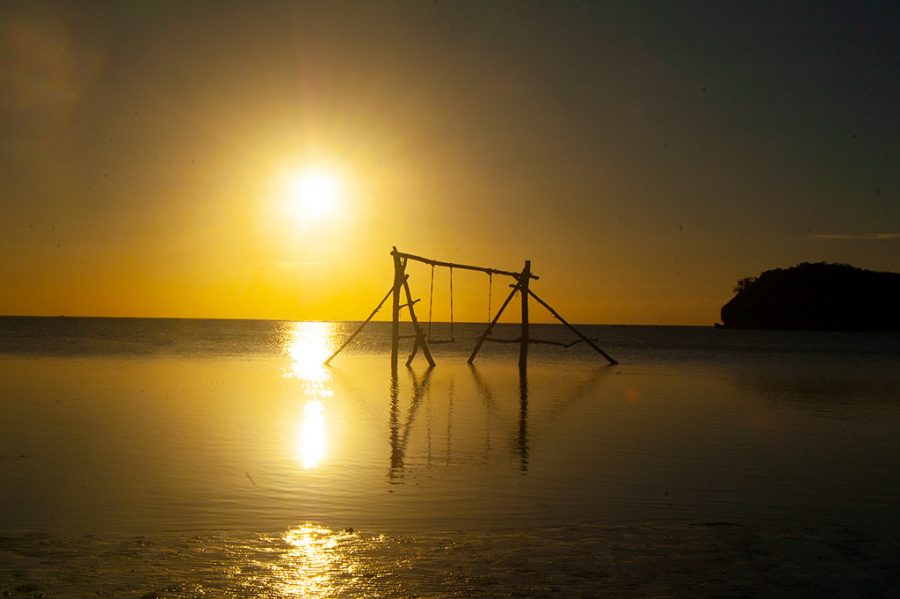United States Territories’ Struggle To Be Heard
“Where America’s Day Begins,” is home to many beautiful beaches, lookouts, and some of the best food.
“Where America’s Day Begins,” is the slogan associated with Guam, one of the five major U.S. territories. This island in the western Pacific Ocean may be where the first rays of sunshine strike American soil but the residents of Guam continue to live with inequality compared to the residents of the United States of America. Unlike the continental United States, the disenfranchised citizens of Guam are unable to cast their vote for the president of the country’s whose day begins with them.
“Voting is a right, it’s not a privilege,” said Rhea Jose, a 21-year-old native of Guam. “Since they are not giving us the right to vote as U.S. citizens, they are basically using us [Guam] as a playground to play battleship. They just want us to be there for them by giving us the title of U.S. citizenship without any rights.”
Every four years the citizens of the United States of America are encouraged to exercise their right to vote for the nation’s next president. Yet the people of these territories are left unheard when voting for the president of our nation because while they are considered citizens of the country, they are not given a vote for U.S. president thanks to the Electoral College system that only recognizes states’ votes. Approximately 3.5 million people reside in the major U.S. territories and all are left voiceless every time the presidential election rolls around.
These main territories include Guam, Puerto Rico, the U.S. Virgin Islands, the Northern Marianas Islands, and American Samoa. The inhabitants of all listed except American Samoa (nationals) are considered to be citizens of the United States, meaning they have constitutional personhood, yet are deprived of the right to vote for the presidency. Although they are stripped of this right, they are allowed to vote for Congress members, senators, and governors.
Despite the citizens of these territories being unable to vote on their homeland, they are able to vote if they move to one of the states inside of the continental U.S. However, having to leave their land to receive the rights in our Constitution is too far for some, including Jose.
“In the end, this whole voting thing isn’t really for us because we want to be decolonized and we want to be our own independent nation,” said Jose, who is a senior at Chaminade.”For the longest time we’ve been colonized and have had no say about what goes on within our island, and what is best for our people.”
Other territories have the same problem, but are heavily dependent on the U.S. for financial support, including the island of Saipan in the Northern Marianas Islands. Saipan is referred to as a commonwealth of the U.S., mainly due to the federal funding they receive. Although they are also unable to vote for the president from their homeland, many have accepted that their relationship with the U.S. is the best that they have to work with at the moment.
“I think it’s a good compromise.” said Miguel Dandan, a 24-year-old native of Saipan and Chaminade alumnus. “Although we can’t vote here [Saipan], we are still U.S. citizens. We can still vote, but we just have to move to the states. If I ever feel the urge to vote, I can just move to the mainland. We are so far away from all of the stuff that is happening that it never really bothered me.”
Dandan mentioned that national politics are more of a recreational discussion than anything. Not many pay attention to it unless they feel inclined to do so themselves, everyone else on the other hand is more involved in local politics and local elections.
The unique territory of American Samoa differs than both Guam and Saipan because the residents are considered nationals, not citizens. Due to the fact they are nationals, they elect their own leaders and run their own government but still must abide by policy changes enforced by the U.S. government. Although the citizens of American Samoa cannot vote for America’s president, they still have different resources available to ensure that their voices are heard when they feel a policy made by the U.S. government should be addressed or reshaped.
“I can say it’s [relationship between U.S. and American Samoa] well-balanced at the moment,” said Kiso Skelton, a Chaminade senior and native of American Samoa. “We have our own government, we run our own government, and we elect our own leaders. So basically the people of American Samoa are choosing their leaders and making decisions at the local level while respecting the federal level. The government [of American Samoa] does have the power to propose and adjust any changes made by the United States government. There is always an area of improvement to make sure that balance is maintained and strengthened as we move forward with our relationship with the United States government.”
Guam, Saipan, and American Samoa all come from different backgrounds and differ in their perspectives on the U.S. government. But what they have in common is their inability to exercise their right to vote for the nation’s leader in which they are all a territory of.
